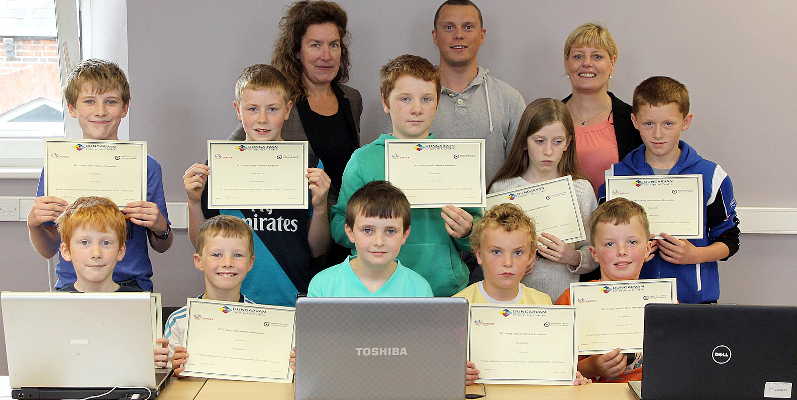The world now knows that the digital age is here to stay. Today, technology powers everything in our lives. All aspects of our personal lives and our work lives are affected by computers. Computer science is today, a way of working, thinking, and a way of viewing and dealing with the rest of the world.
Those countries and peoples, who understand that the world has progressively become more dependent on computers, want their young people to understand computer software better. They also understand that failing to teach computer science skills, will inevitably affect their country’s economy.
Last October, representatives of Facebook, Microsoft, Rovio, and other tech firms, wrote an open letter to the EU’s education ministers ‘asking for more action to fill what they estimate will be 900,000 vacant jobs in Europe’s ICT sector by 2020’.
They wrote: ‘As stewards of Europe’s future generations, you will be all too aware that as early as the age of 7, children reach a critical juncture, when they are learning the core life skills of reading, writing, and basic math. However, to flourish in tomorrow’s digital economy and society, they should also be learning to code. And many, sadly, are not. All too often, ICT and computer science skills are seen as niche, with little relevance to other fundamental academic pursuits.’
As a result, England became the first country in the European Union to mandate computer science classes for all children between the ages of 5 and 16, starting with this school year. And since then, many European countries have been changing their curricula, making teaching of computer science mandatory. And so has the United States of America following a nationwide campaign embraced and led by President Obama. Technology companies in the US are reported to have been hosting free computing sessions at their stores across the country since last year. Americans understand that technology is moving very fast, they want their young people to be competitive in the fastest growing industry.
That said, how are we doing in Uganda? We have been told by experts that our governments are ‘harming their primary and secondary school students, both educationally and economically’ , by not teaching them to understand that they will not be able to compete in the job market and general development if they are not educated in computer science.
Today, many of our young people graduate from universities without the basic understanding of how to use a computer. This is of course because our schools don’t teach computer science in primary and secondary schools. Yet when you listen to Ugandans campaigning for presidency in this country, there is no talk of making the teaching of computer science mandatory if our children are to better their lives and their country in the future.
Is it because our leaders are not computer literate to understand the ways of the world? Barack Obama consoles, ‘No one’s born a computer scientist, but with a little hard work – and some math and science – just about anyone can become one.”
Or is it because we are simply a bunch of ignorantos stuck in time past, desperately needing to be recolonised? You tell me.








